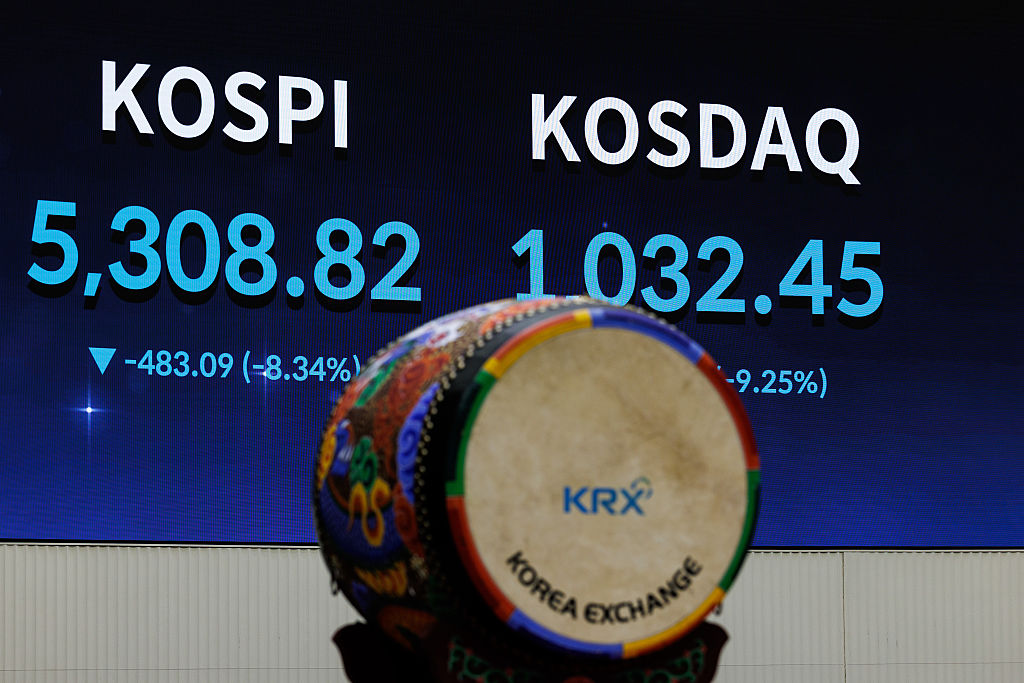The pick of this year's financial books
Merryn Somerset Webb picks the best of this year's books to work your way through over the Christmas break.

Get the latest financial news, insights and expert analysis from our award-winning MoneyWeek team, to help you understand what really matters when it comes to your finances.
You are now subscribed
Your newsletter sign-up was successful
Want to add more newsletters?
I used to write two book lists a year one of suggestions for things to read on your summer holidays, and one of suggestions for your Christmas holidays. I skipped the summer list this year after taking pity on a reader who emailed to beg for a break.
He was determined to read every recommendation, but was still stuck somewhere in the middle of the list from December 2012.
I know how he feels. I'm buried under books. They arrive endlessly from publishing companies, from public relations companies and from hopeful amateurs unfamiliar with the nightmare that is trying to get your life's work mentioned in the papers.
Try 6 free issues of MoneyWeek today
Get unparalleled financial insight, analysis and expert opinion you can profit from.

Sign up to Money Morning
Don't miss the latest investment and personal finances news, market analysis, plus money-saving tips with our free twice-daily newsletter
Don't miss the latest investment and personal finances news, market analysis, plus money-saving tips with our free twice-daily newsletter
I pile the books up under my desk and all around my room. To get from the door to me you have a navigate several unsteady mountains of print, some of which reflect short-lived attempts by me to sort the tsunami of titles by subject matter, some of which are just the result of vague tidy ups, or of office tower-building competitions.
All leave me with a vague sense of stress ("I must read those books") and guilt ("it isn't kind of me to have not read those books people worked so hard to write").
I need an incentive to get reading and sorting and that incentive is usually a column on books. With that in mind I'm not giving you any more book breaks. And I'm going to make this month's extra long. No mercy!
So here we go. First, you must read Andrew Smithers' new book The Road to Recovery: How and Why Economic Policy Must Change. You can read more about his views on other matters elsewhere, but the book is mainly about understanding that everyone reacts very clearly to financial incentives.
So when we look around the US and US economies and wonder why corporate investment (and hence growth) is so weak, all we need to do is figure out who has an incentive to prevent long-term investment taking place.
The answer? Anyone who is running a company and has a pay package based on short-term profits and the share price of that company. Investment might push up long-term profits, but it doesn't do much for margins, the share price or manager remuneration.
Our current system incentivises corporate leaders to spend money buying back their own shares (a totally pointless activity) rather than on investing in plant, equipment, people or technology. And we wonder how we got where we are.
For more on the way the wrong incentives give the wrong result I suggest you turn to Dominic Frisby's Life After the State. You won't agree with all of it. But the argument for a very small state is rarely put in the UK these days and if you have ever had a sneaking suspicion that the UK welfare state in particular is its own worst enemy, you will find something in it to agree with.
Even if you viscerally disagree, you'll have a great deal more to think about by the end of it. Here's a quote to get you going. "Almost everything the state currently provides...has its natural purpose distorted: health, education, money they're no longer about what they're about instead they have become political tools liable to manipulation and devaluation. The costs come in lack of progress, motivation, freedom and worse." Dominic is a contributor to MoneyWeek, by the way.
Sticking with the nightmare of political mismanagement, there is Europe's Deadlock: How the Euro Crisis Could be Solved and Why it Won't Happen by David Marsh. It is the best overall analysis of the impossible problems facing the eurozone that I have read this year and the only one that suggests a plausible, if not very attractive, way out (think full-on political union). The euro crisis will be back to haunt us at some point in 2014, so we might as well study it now.
I suspect the same might go for China where, all too often, our heads are full of stereotype rather than actual information. We might be better investors if we had a go at changing that. I'd read Ben Chu's Chinese Whispers: Why Everything You've Heard About China is Wrong.
Turns out that China's culture is as fluid and externally influenced as everyone else's; that they want democracy as much as the rest of us; that its education system isn't as superior as you might think; and that far from reinventing capitalism, the Chinese have simply managed to distort it more than anyone thought possible.
Chu's question is only whether China's leaders can find a new model in time to prevent the biggest boom in history turning into the biggest bust.
If that all sounds a bit apocalyptic, here's something more hopeful: technology. To see how digital technology has changed the way we live you have to read Brad Stone's The Everything Store: Jeff Bezos and the Age of Amazon (it's the FT's business book of the year).
Also on tech it is worth reading Big Data: A Revolution That Will Transform How We Live, Work, and Think, by Viktor Mayer-Schonberger and Kenneth Cukier. The title sums it up technology is changing the way we see everything from medical diagnosis to inflation.
Finally, to investment. Try Deep Value Investing by Jeroen Bos, a fund manager who successfully practises what he preaches. If you are patient, clever and interested in balance sheets this one will keep you going for at least all of Boxing Day.
If, on the other hand, you aren't won over to the active fund management cause, you might look at Investing Demystified, by Lars Kroijer. It isn't the easiest read on the list, but it does an excellent job of explaining why you should invest mainly via index funds and exchange-traded funds, and how you should do it.
For those in doubt, Kroijer has a nice nudge statistic: if you save 10% of your income from age 30 to 67, from a starting income of £50,000 rising with inflation, and get a return of 7%, you will end up with over £1m pre-fees and a mere £663,000 if you pay 2% in total every year.
You get the point: choose the wrong fund and you'll pay your manager the equivalent of a pretty nice yacht over your working life and you'll make less money too.
Happy Christmas!
This article was first published in the Financial Times.
Get the latest financial news, insights and expert analysis from our award-winning MoneyWeek team, to help you understand what really matters when it comes to your finances.

-
 Stock market circuit breaker: Why did Korean shares stop trading?
Stock market circuit breaker: Why did Korean shares stop trading?The fallout from the conflict in the Middle East hit the Korean stock market on 4 March, with shares forced to temporarily stop trading. What is a stock market circuit breaker, and why did the KOSPI trigger one?
-
 The UK regions with the highest proportion of homes above the inheritance tax threshold
The UK regions with the highest proportion of homes above the inheritance tax thresholdHigh house prices are pushing more families into the inheritance tax trap across the country
